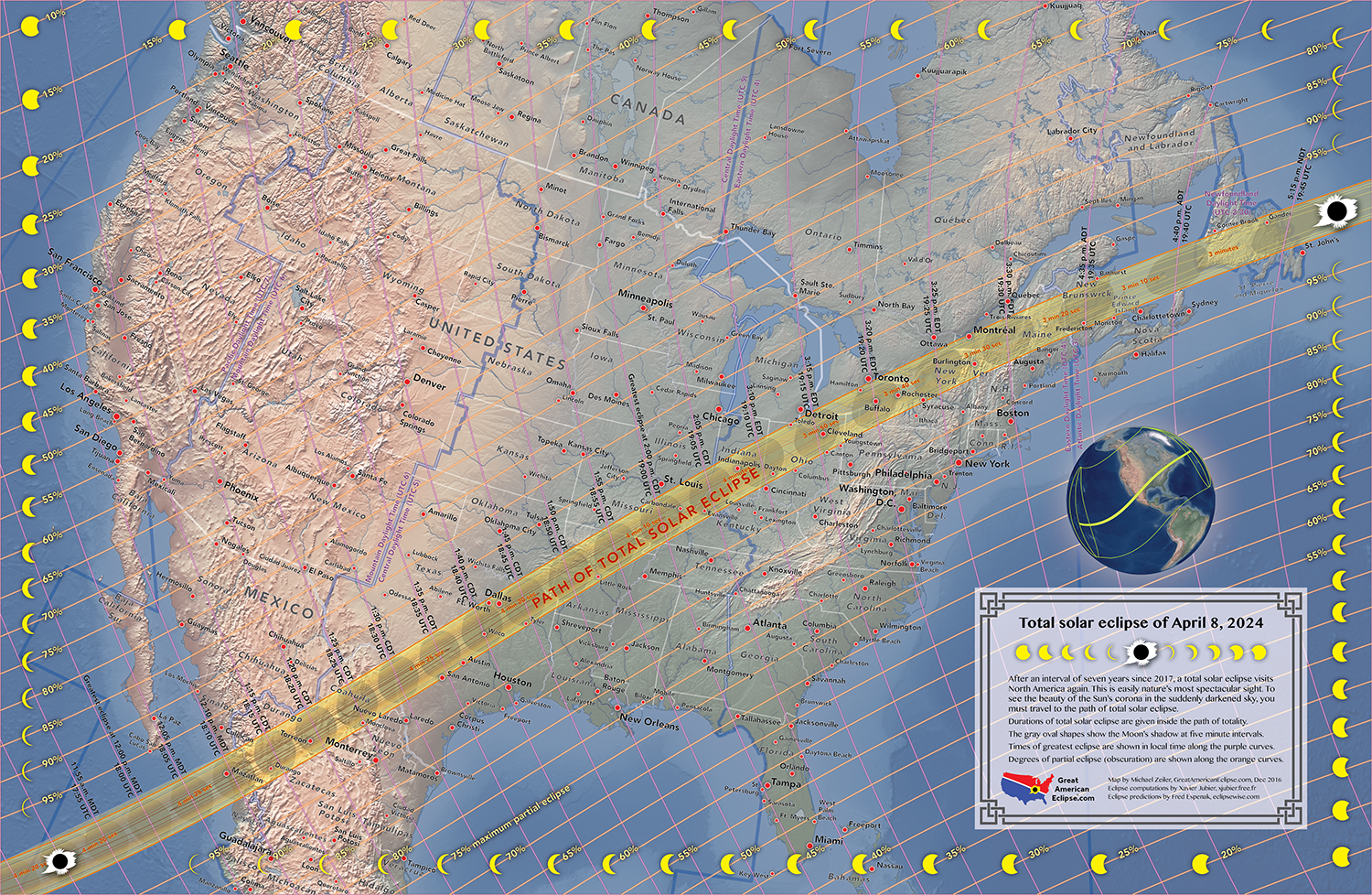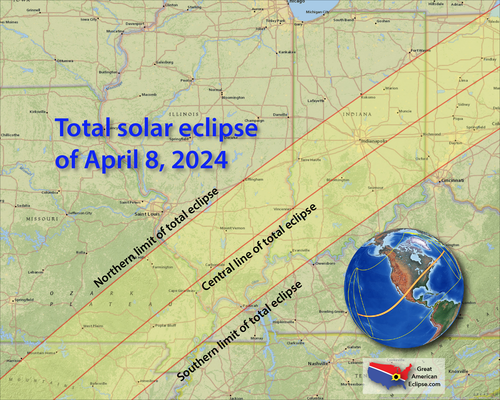Total solar eclipse exactly 5 years away; will move over Indiana
Make those plans now! In exactly five years, on April 8th, 2024, an incredible astronomical event will unfold: a total solar eclipse. It will be the first total solar eclipse to pass through the United States since the Great American Solar Eclipse of August 2017. And, we will be even closer to the path of totality than we were in 2017.
The event will begin in Mexico in the morning of April 8th before spreading northeastward through Texas, Arkansas, Illinois, Indiana, Ohio, New York, and Maine into the early afternoon. Several large to even major cities will experience totality, including:•Austin and Dallas, Texas
•Little Rock and Jonesboro, Arkansas
•Paducah, Kentucky
•Evansville, Indianapolis and Kokomo, Indiana
•Dayton, Toledo, Cleveland, and Akron, Ohio
•Buffalo, Syracuse and Rochester, New York
While Michiana is not included in the path of totality, you only need to travel roughly two hours southeast to see totality. This includes cities like Kokomo, Marion and the southern part of Fort Wayne. If you want to be in the dead center of the eclipse, head to Vincennes, Bloomington, Shelbyville, or New Castle, Indiana.
The eclipse will begin in Southwest Indiana around 1:45 p.m. and end around 4:25 p.m. in Northeast Indiana. Here's how the eclipse breaks down for a few cities in Indiana:•Vincennes: partial eclipse begins at 1:47 p.m.; total eclipse begins at 3:02 p.m.; totality is 3:05 p.m.; total eclipse ends at 3:07 p.m.
•Bloomington: partial eclipse begins at 1:49 p.m.; total eclipse begins at 3:05 p.m.; totality is 3:07 p.m.; total eclipse ends at 3:09 p.m.
•Indianapolis: partial eclipse begins at 1:50 p.m.; total eclipse begins at 3:06 p.m.; totality is 3:08 p.m.; total eclipse ends at 3:10 p.m.
•Kokomo: partial eclipse begins at 1:51 p.m.; total eclipse begins at 3:08 p.m.; totality is at 3:08 p.m.; total eclipse ends at 3:09 p.m.
•South side of Fort Wayne: partial eclipse begins at 1:53 p.m.; total eclipse begins at 3:10 p.m.; totality is at 3:10 p.m.; total eclipse ends at 3:11 p.m.
For more on this event, click here.



